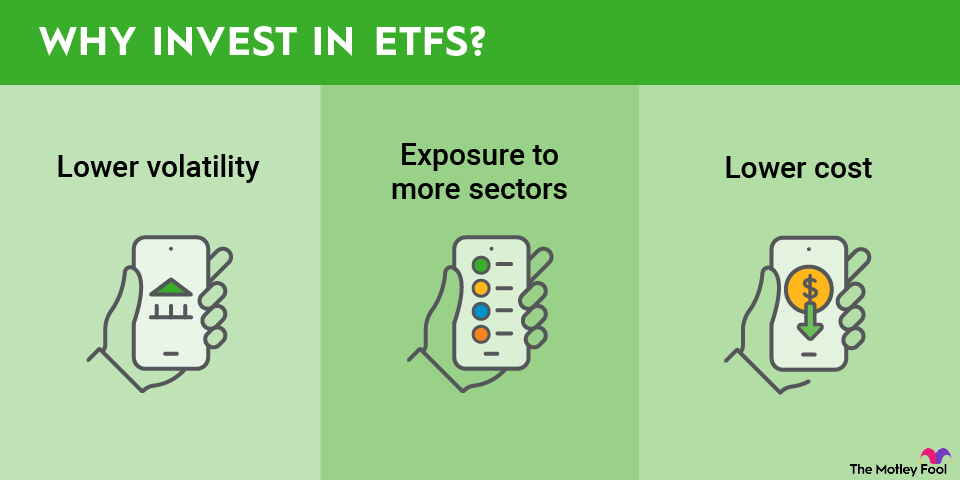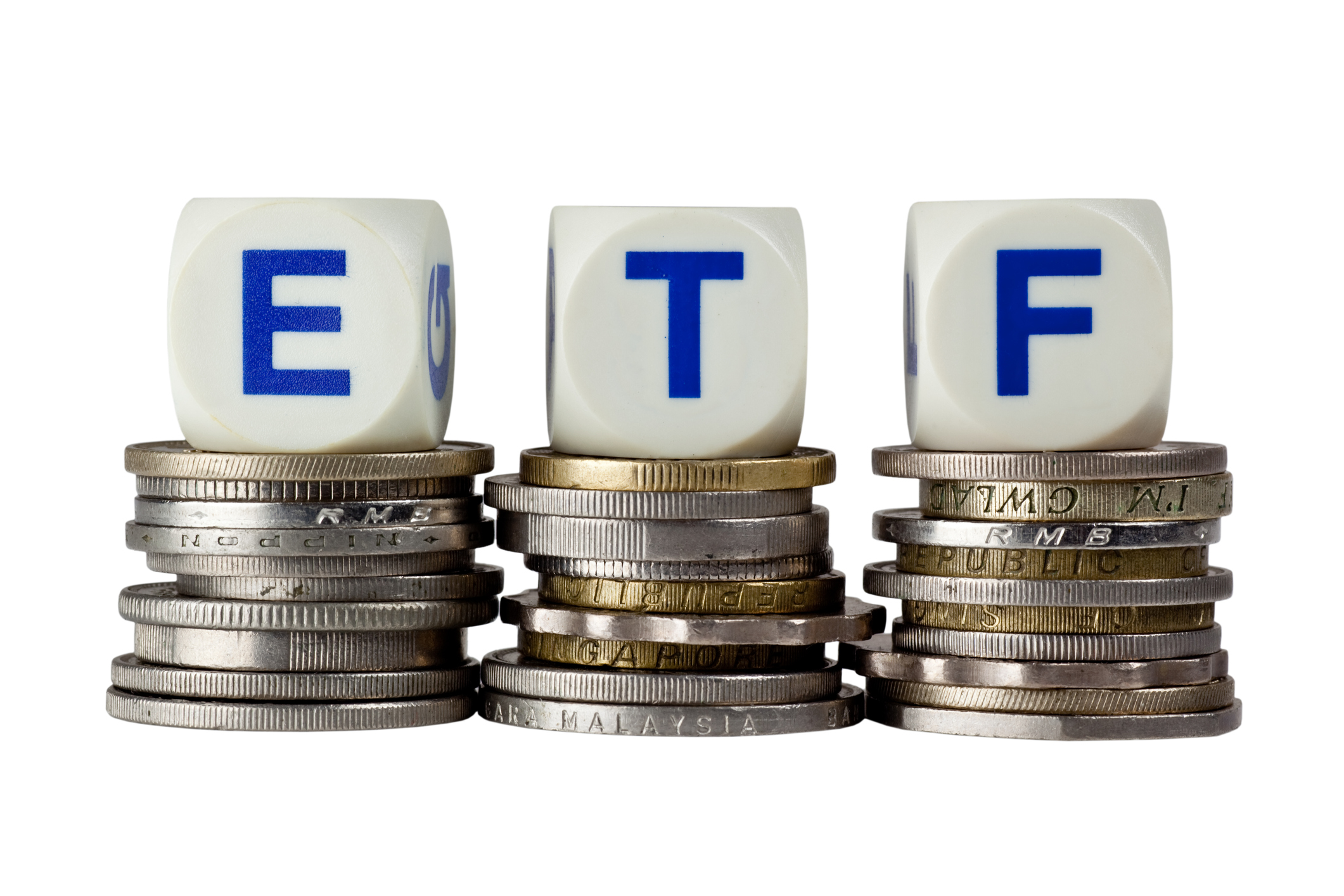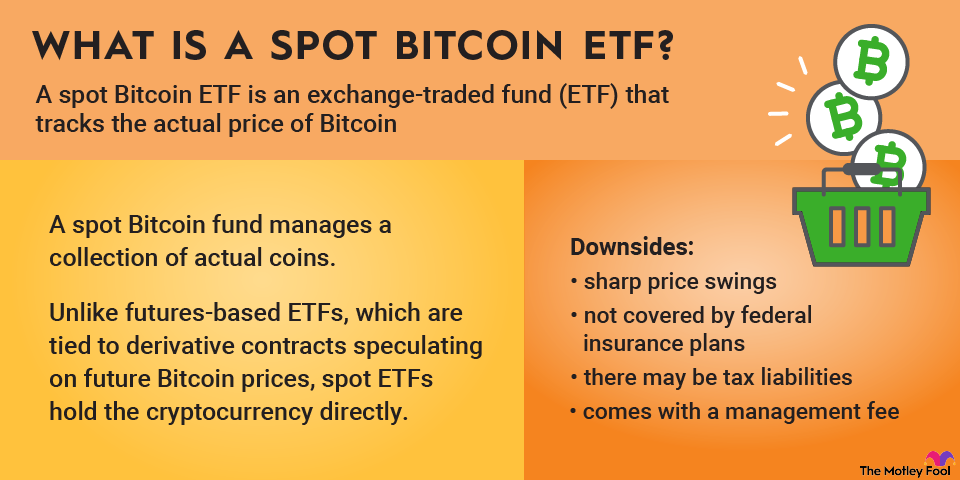The Vanguard Real Estate ETF (VNQ +0.20%) is a popular exchange-traded fund (ETF) with net assets of approximately $65.7 billion as of late 2025. The fund is part of The Vanguard Group's collection of ETFs, many of which track the performance of a particular market index. The privately held investment advisory firm is a top asset management company.
ETFs can enable investors to diversify holdings in various assets like stocks while getting automatic exposure to numerous investments. The VNQ ETF was first launched in September 2004.

Rather than purchasing each of the stocks contained in the ETF individually, you can become part owner of all the assets contained in the fund's portfolio with a single purchase of the ETF's shares. If you're interested in the Vanguard Real Estate ETF, here's what you need to know about how to buy shares, the ETF's holdings, its dividend, expense ratio, and more.
Exchange-Traded Fund (ETF)
What is the Vanguard Real Estate ETF?
The Vanguard Real Estate ETF aims to track the performance of the MSCI US Investable Market Real Estate 25/50 Index. That index is designed to capture the large-, mid- and small-cap segments of the U.S. equity universe, focusing on stocks of companies within the real estate sector.
The VNQ ETF provides exposure to a wide variety of publicly traded equity real estate investment trusts (REITs) and other real estate-related investments, including real estate management and development companies.
How to buy the Vanguard Real Estate ETF
It's very easy to buy shares of the Vanguard Real Estate ETF through your preferred brokerage account. Here's a step-by-step guide.
- Open your brokerage app: Log in to your brokerage account where you handle your investments.
- Search for the ETF: Enter the ticker or ETF name into the search bar to bring up the ETF's trading page.
- Decide how many shares to buy: Consider your investment goals and how much of your portfolio you want to allocate to this ETF.
- Select order type: Choose between a market order to buy at the current price or a limit order to specify the maximum price you're willing to pay.
- Submit your order: Confirm the details and submit your buy order.
- Review your purchase: Check your portfolio to ensure your order was filled as expected and adjust your investment strategy accordingly.
Holdings of the Vanguard Real Estate ETF
The Vanguard Real Estate ETF closely tracks the returns of the MSCI US Investable Market Real Estate 25/50 Index. The fund primarily invests in stocks held in REITs, as well as companies that purchase properties like hotels and office buildings. All of the fund's investments are in domestic U.S. real estate holdings, with a healthy mix of both commercial and residential real estate.
The Vanguard Real Estate ETF holds 154 stocks, with the median market capitalization of these investments coming in at $35.7 billion. As of late 2025, the top 10 holdings of this ETF included:
- Vanguard Real Estate II Index Fund Institutional Plus Shares (VRTPX +0.18%): 14.44%
- Welltower Inc. (WELL +0.95%): 6.17%
- Prologis Inc. (PLD +0.38%): 5.92%
- American Tower Corp. (AMT +1.02%): 5.35%
- Equinix Inc. (EQIX -0.19%): 4.31%
- Simon Property Group Inc. (SPG -0.20%): 3.31%
- Digital Realty Trust Inc. (DLR +0.28%): 3.17%
- Realty Income Corp. (O -0.18%): 2.98%
- CBRE Group Inc (CBRE -0.55%): 2.71%
- Public Storage (PSA -1.38%): 2.61%
The Vanguard Real Estate ETF is extremely well diversified across various REIT sectors as well as other real estate investments like operating companies. With 17 different subsectors covered, the ETF's top three weighted exposures as of late 2025 were:
- Healthcare REITs: 14.11%
- Retail REITs: 13.61%
- Telecom tower REITs: 10.60%
These and other key weightings in the fund's portfolio will have the broadest impact on its performance.
Should I invest in the Vanguard Real Estate ETF?
Choosing any investment for your portfolio is a very personal choice. You need to ensure that the Vanguard Real Estate ETF aligns with your risk tolerance level, the investment goals you've set for your portfolio, and that you have a general understanding as well as interest in real estate investments.
The Vanguard Real Estate ETF benefits from a weighted index that is very well diversified across numerous forms of real estate assets but composed primarily of equity REITs. This means that rather than investing in riskier instruments like mortgages, the ETF invests in companies that own tangible assets, including both commercial and residential real estate.
Given the headwinds the real estate industry has been facing over the last few years, including labor and materials shortages and an increase in short-term interest rates, it's not surprising that this ETF hasn't been a robust performer. However, it's matched its benchmark index's returns while delivering sustained dividend income. A more tepid performance compared to other benchmarks like the S&P 500 is also one of the factors behind its dividend yield of 3.48%.
While that above-average yield is a short-term benefit, the long-term outlook for the real estate industry as a whole is still extremely favorable. As interest rates slowly decrease and the cost of capital goes down, these will be notable tailwinds for real estate–focused businesses, including REITs.
As rates fall, investors also tend to transition to putting cash back into income-centric stocks, which can also be a tailwind for dividend investments like the Vanguard Real Estate ETF.
Investors with a durable buy-and-hold horizon who want to put cash into real estate may find that a diversified fund like the Vanguard Real Estate ETF is a great choice, particularly as conditions continue to improve in this space. For investors who don't quite have the risk appetite for the ups and downs of the real estate space, it may not be the preferred choice.
Likewise, if you're nearing retirement and need more income than the Vanguard Real Estate ETF might provide, you may want to consider other funds that provide exposure to a wider range of industries and companies.
Does the Vanguard Real Estate ETF pay a dividend?
The Vanguard Real Estate ETF pays a dividend that yielded 3.48% in late 2025. The dividend is paid on a quarterly basis.
What is the Vanguard Real Estate ETF's expense ratio?
The Vanguard Real Estate ETF has an expense ratio of 0.13%. The Vanguard Group in particular is known for its reasonable expense ratios, and the ETF's expense ratio is far below the market average of about 0.5%. The annual fee charged by the firm for a $10,000 investment in the Vanguard Real Estate ETF would come to around $13.
Expense Ratio
Historical performance of the Vanguard Real Estate ETF
The Vanguard Real Estate ETF is supposed to closely mirror the performance of the MSCI US Investable Market Real Estate 25/50 Index. Let's take a look at how the ETF has delivered on that objective over the trailing one-, three-, five-, and 10-year periods.
Return Period | 1-Year | 3-Year | 5-Year | 10-Year |
|---|---|---|---|---|
VNQ (Market Price) | 0.73% | 4.04% | 6.40% | 6.40% |
VNQ (NAV) | 0.70% | 4.02% | 6.40% | 6.40% |
Benchmark | 0.83% | 4.16% | 6.55% | 6.53% |
The fund's returns have roughly matched those of the index it seeks to track.
Related investing topics
The bottom line on the Vanguard Real Estate ETF
The Vanguard Real Estate ETF is a leading ETF that has broadly delivered on its objective to track the returns of the MSCI US Investable Market Real Estate 25/50 Index over the years. While the real estate industry has faced some bumps over the last few years with the COVID-19 pandemic and the unfavorable interest rate environment, these headwinds are receding steadily.
The Vanguard Real Estate ETF features an impressive collection of REITs as well as other real estate companies across sectors ranging from telecom to to healthcare to data centers to retail. This magnifies the potential for better returns, investment income, and growth over the next five to 10 years as the real estate industry continues its recovery.
While shares of real estate stocks tend to rise and fall more sharply than less seasonal sectors, income-seeking investors with the appetite to invest in real estate may favor the instant diversification this ETF provides. The Vanguard Real Estate ETF’s ultra-low expense ratio may just be icing on the cake.























